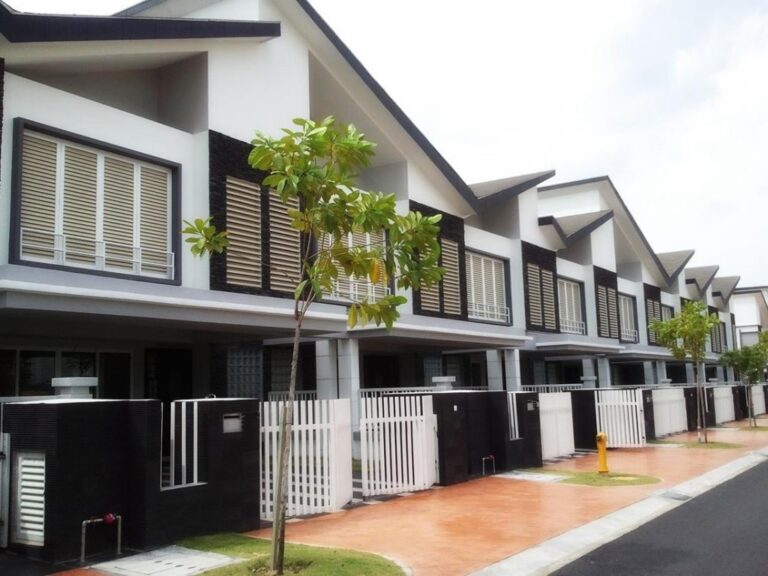How to Find the Property Manager of a Building | Expert Tips

If you’re a tenant, it’s important to know who your property manager is. They’re responsible for overseeing all aspects of the property, from repairs and maintenance to leasing and collecting rent. Unfortunately, many tenants don’t know how to find their property manager or don’t even realize they have one. In this post, we’ll show you how to find the property manager of a building and what to do if you have a problem.
What is a Property Manager?

A professional property manager, often known as a property management business, is a person or corporation engaged in overseeing the daily operations of a property.
The commercial real estate management agency might be one or two people or a huge team that works onsite, depending on the size and kind of the property.
A multifamily property, for example, is likely to have an onsite crew because this property type necessitates more active management involvement. On the other hand, an industrial property may not require any onsite representation at all.
In brief, the property management agency acts as the owner’s representative, and many tenants are unaware of the distinction. Their presence allows property owners to expand and extend their portfolios without dealing with day-to-day property management.
Why do you need the property manager’s contact information?

In most cases, you’ll need to contact the property manager to get any issues with the building resolved. The property manager is responsible for managing the property, including overseeing repairs, addressing tenant concerns, etc.
If you’re having any problems with your building, the property manager is the first person you should contact. In some cases, the property manager may also be responsible for collecting rent and handling other financial matters.
How to find the Contact Information for the Property Manager of a Building

Search the web or the directory of the building
The best way to find the property manager for a building is to search the web or the directory of the building. Most large buildings have a website that will list the property manager’s contact information. If you can’t find it on the website, try looking in the directory of the building. The property manager’s contact information should be listed in either place.
Try looking them up online or contacting the building’s owner
You should be able to find the property manager’s contact information in the building’s directory or on its website. If you can’t find it, you can try looking them up online or contacting the building’s owner. Once you have the property manager’s contact information, you can reach out to them with any questions or concerns about your tenancy.
Inquire with current tenants.
Talk to the individual who lives in the apartment or house you want to rent if at all feasible. Inquire about the building’s or neighborhood’s security and noise levels and any issues with repairs and essential utilities like heat and hot water.
If you cannot speak with the current renter, go to the building after work to see if any other tenants are available.
Inquire about the benefits and drawbacks of living in the building and the landlords (or manager’s) attitude and business approach. Is the landlord responsive to repairs? Are the communal areas and grounds kept in good repair? If you lock yourself out of your flat, will the manager be able to help you?
Is the landlord respectful of the renters’ privacy, or does he comes by unannounced to check these things out? Is the manager overly pleasant or do they gossip about other tenants?
Inquire about any issues that are particularly significant to you. If residing in a silent property is important to you, you’ll want a landlord who keeps noise to a minimum. On the other side, if you’d prefer to live somewhere where your once-in-a-while late-night celebration doesn’t wake up the landlord, make sure to inquire about it.
Finally, investigate if you can learn how frequently the property has openings and, more importantly, how frequently your probable homeowner has had to evict a tenant. A high number of evictions and turnovers indicate a concern.
Inquire of Neighbors in Surrounding Buildings
Other residents and businesses in the area may be aware of the building’s reputation and the tenants, landlord, or manager. Inquire about crime in the area, including street and apartment break-ins and other events needing police intervention. If tenants appear to stay longer than a year, the building will be well-run.
Call the city or county tax assessor’s office
If you can’t find the contact information for the property manager, your next step is to search for the owner of the building. The owner’s contact information should be listed in public records. If you still can’t find it, your last resort is to call the city or county tax assessor’s office. They should be able to direct you to the right person.
Frequently Asked Questions
What is the best way to find a good property manager?
- The first step is to obtain referrals. Referrals are the greatest method to discover reputable property management.
- Take note of your first impression.
- Learn how the person handles job postings and openings.
- Agree on the contract’s conditions.
- Go over the tenant leasing agreement with the management.
What exactly does a property manager do?
Setting and collecting rent, resolving requests, filling unoccupied units, and maybe establishing the property’s budget are all obligations of the property manager. Property managers frequently look after properties that real estate investors don’t live locally or don’t want to handle themselves.
What is the first obligation of a property manager to the landlord?
First obligation of a property manager to the landlord to maximize the profit on the property while adhering to the owner’s directions.
What does a property manager make in the United Kingdom?
In the United Kingdom, how much does a property manager earn? / Every year. In the United Kingdom, the average property manager’s pay is £30,000 per year or £15.38 per hour.
The starting salary for entry-level occupations is £25,000 per year, with most experienced individuals earning up to £50,000 per year.
Conclusion
Whether you’re a tenant or the owner of a building, it’s important to have the property manager’s contact information. If you’re a tenant, you may need to contact the property manager if there’s a problem with your apartment or if you need to renew your lease.
If you’re the building owner, you may need to get in touch with the property manager to ask about repairs or to get information about who is currently renting your building.
No matter the reason, it’s easy to find the contact information for the property manager of a building if you know where to look.






